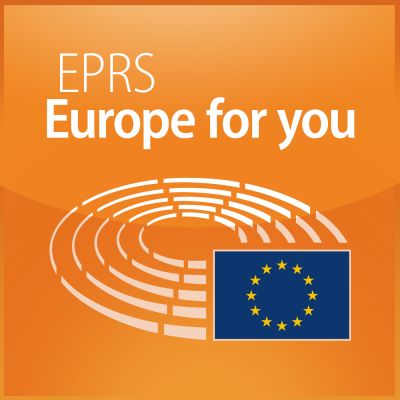http://www.w3.org/2005/Atom
http://www.europarl.europa.eu/rss/en/audio-podcasts.html
Gesamtlänge aller Episoden: 1 hour 51 minutes
Teachers
Most people have heard of Erasmus, the EU’s successful student exchange programme, which has enabled millions to study abroad. Less well known is that teachers – from universities, schools, vocational colleges and adult education – can also take part. In 2015, over 100,000 teachers travelled abroad with the help of EU grants.
Rail passengers
Considerable growth in passenger transport in the EU and a wider choice of transport operators has led the EU to consider that passengers should benefit from the same standards of treatment, regardless of how and where they travel. It has therefore adopted a common set of 10 basic rights for rail, air, road and waterborne passengers, to provide them with information and assistance and forbid discrimination.
Surfers
The EU makes it easier for you to enjoy riding the waves in several ways. Most importantly, you can enjoy improved water quality at many EU surfing spots, thanks to EU rules that protect the environment, including against sewage and industrial waste. This reduces your chances of getting sick. The EU also publishes information on bathing water quality online, so that you can easily check the water quality at your favourite surfing spots.
Early school leavers
Did you leave school early? Or do you know someone who might? Leaving school without qualifications may seem a personal choice, yet around 6.4 million young people in Europe are in the same situation. School can seem too difficult or irrelevant and other problems may make walking out seem like the thing to do...
Freelancers
Are you a highly-skilled professional, who would rather work for clients on specific projects than have a fixed job? If you have a flair for innovation and are ready to take business risks to gain greater independence and flexibility, why not freelance? You may be surprised to learn that more and more EU citizens are seeking freelancing careers.
Residents in disaster stricken regions
Who is safe from a disaster striking? Flooding, heat waves and droughts are the most common hazards, but almost a quarter of the European population is also potentially at risk of an earthquake and 11 million live in dangerous proximity to an active volcano.
Animal lovers
Spending time with animals and caring for them makes us happy. Some of us have established deep bonds with animals, be it a dog, a cat or a bird. The European Union has made it much easier for you to travel with your pet cat, dog or ferret.
People fighting wildlife trafficking
Wildlife trade is one of the most lucrative trades in the world. The legal trade into the EU alone is worth €100 billion annually, while the global illegal wildlife trade (trafficking) is worth between €8 and 20 billion annually. The trade is highly complex and its legal and illegal forms are often connected.
Adult educators
If you teach adults, you are on the frontline of a multitude of growing challenges for adult education. These challenges include the need to help the active working population to adjust their skills to shifting job requirements, and low-skilled unemployed workers to upgrade theirs. Adult educators help societies to face challenges such as supporting older adults to connect to an increasingly digitalised world, and integrating migrants into their new environment.
LGBTI citizens
If you are LGBTI (lesbian, gay, bisexual, transgender or intersex), the EU forbids discrimination against you on the grounds of your sexual orientation. Your national government, however, decides on your safety, healthcare and education. There can be significant differences between EU countries on these rights, as well as on access to goods and services, family status and marriage and civil union rights.
